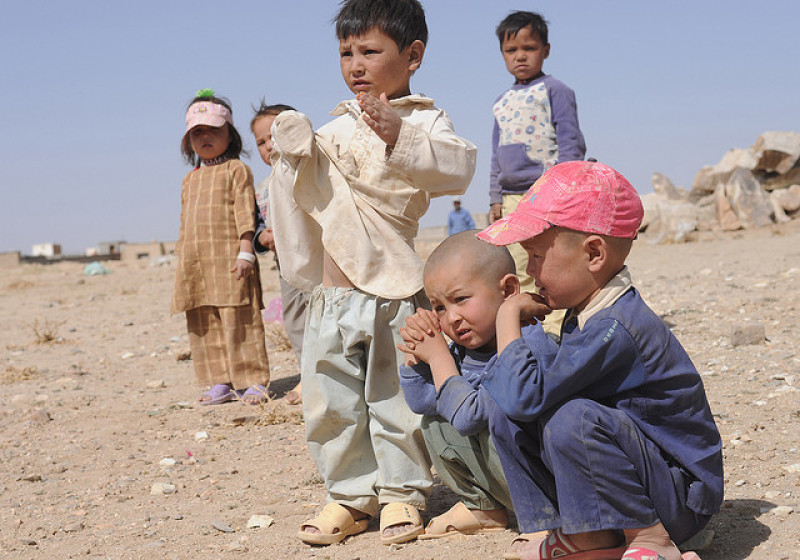
After the departure of U.S. forces from Afghanistan, the country's economy naturally started to deteriorate. Afghans have turned to selling their possessions in order to survive and are now reportedly selling their own children.
According to PJ Media, the sale of children is not uncommon in Afghan society. The reasons vary, but the most often stated is a wish for their children to have a better opportunity in life due to their inability to care for their basic needs.
One father, Mir Nazir, told The Times that it "isn't about choice" but rather "desperation" that they are forced to sell their children.
"I would prefer to die than be reduced to selling my daughter," said Nazir. "But my own death wouldn't save anyone in my family. Who would feed my other children? This isn't about choice. It's about desperation."
After falling on hard circumstances, another Afghan father sold a ten-week-old infant in January for 70,000 AFN.
The Afghans' value, on the other hand, has plummeted since the Taliban seized control on August 15.
Since their takeover of the country, the economy of Afghanistan has suffered even more. Many foreign assistance to Afghanistan, notably the World Bank, was suspended or canceled, halting aid to Afghanistan in August.
The International Monetary Fund also restricted access to emergency reserves of $460 million while the United States reportedly banned almost $7 billion of Afghan central bank reserves in American banks.
PJ Media explains that nearly 70% of Afghan state expenditure depends on foreign aid. Food costs have also gone up over the last few weeks, and countless numbers of Afghan workers face layoffs in the security and government sectors.
Although several banks have reopened after their brief shutdown, weekly withdrawals are capped at $170.
"We are relieved that the war and fighting have ended, but we are all facing a new enemy: poverty," said Nazir. "To work, without ever having enough to pay the bills, and come home to see your wife and children getting hungrier as you slide daily into worse debt without any hope that things will get better is a form of pain and worry as bad as the war."
Nazir was a police officer in Ghani until he lost his job and fled to Kabul with his wife and five children only days before the Taliban took over the city. He claims that rent in Kabul is more than his current wages and that his family is starving.
He said that he was approached by a store owner with an offer. This guy is childless and offered 20,000 AFN for Nazir's daughter. She would live with him and work at his shop. He also said that Nazir may repurchase his daughter for the same price.
Nazir, on the other hand, said that he could not sell his daughter for such a cheap sum and demanded 50,000 AFN. The price is still being negotiated between the two parties.
"She may have a better future working in a shop than staying with me, and the price may save my family," Nazir reasoned.
According to World Population Review, Afghanistan's population is at 40,015,572 as of July 1, 2021, while Kabul would have a population of 4,335,770.
Even though Afghanistan has abundant natural resources such as iron ore and rare minerals, these resources remain inaccessible. Additionally, the majority of revenue generated by mineral extraction operations often helps big mining corporations and seldom serves the local people.
Only about one-eighth of the land is fertile. Much of the terrain is unsuitable for agriculture, and much of it is hilly or dry or almost barren. Hence, the country is heavily dependent on food imports.
























